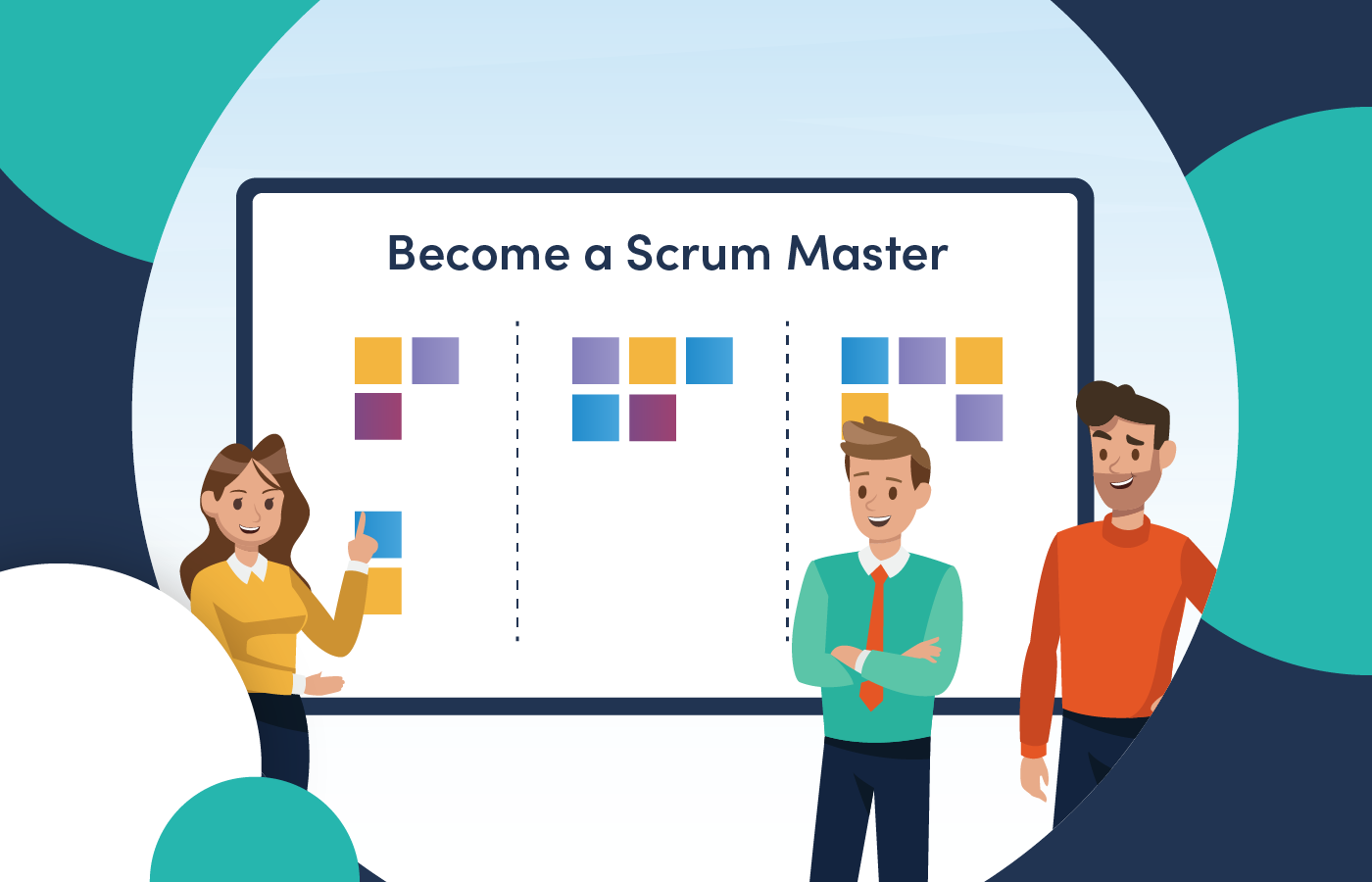Scrum Masters are an important part of an agile team as they are responsible for mentoring, teaching, coaching, and facilitating teams on how to be high performing and self-organizing by applying Scrum practices, values, and principles. As the name implies, they are the master of the “Scrum” but not a master of the team or a project.
While the role may sound simple, it’s very complex and in order to be successful and effective, the person requires a nice balance of soft and technical skills.
There is a high demand for Scrum Masters in many different industries and along with the high demand, many people are becoming Scrum Masters making this a competitive career.
However, should you really become a Scrum Master? The career can be rewarding if you have the right skills for the role but if you don’t, you may find yourself not only at a disadvantage, but also very unhappy.
Before you draft up your next resume, take a moment to consider our top 5 reasons why you should become a Scrum Master.
1. You Are Intrigued by Human Behavior
Most may not understand that Scrum is a human-centric approach. Sure, it’s a framework with a few rules that need to be followed, but at the core of it, are people. People are complex and the interactions between team members are even more complex.
Being a Scrum Master doesn’t mean you need to be an expert in Maslow’s Hierarchy of Needs or Bruce Tuckman’s Stages of Development, but you probably have read more about various human behavior theories than your best friend’s sister.
You understand how to recognize and resolve conflict, what motivates people and how to build high performing teams.
2. You Prefer a Flexible and Fluid Career Path
Being a Scrum Masters can be a long-term rewarding career but if you are attracted to the types of roles that provide different career choices, a Scrum Master role could be the perfect choice.
A good Scrum Master possess a well-rounded set of technical and soft skills which already provides a good foundation for various career paths.
Scrum Masters typically interact with various leaders ranging from C-Suite executives such as Chief Technology Officers (CTO) or Chief Information Organization (CIO), Agile Coaches, and various levels of management.
In fact, you may be responsible for teaching and coaching some of these people which means the exposure provides a chance to learn from them, as well.
Tactec Insider Tip #1: Some organizations may not have a formal career path defined for a Scrum Masters because Scrum Masters can move into various roles that may not fall within the same “job family”. Some people prefer a clearly defined career path, but others may embrace the ambiguity.
3. You Love to Learn
Scrum Masters never truly master anything other than “continuous learning”.
Being part of a Scrum Master community provides many opportunities for learning and regardless of how many “Scrum” books you may have read or if you have the latest version of the Scrum Guide memorized, you can never learn enough about building high performing teams!
If you enjoy learning, you should become a Scrum Master.
4. You Want Job Security & Stability
Companies, of all kinds, are adopting agile mindsets and frameworks to help deliver better solutions to their customers, faster than their competitors.
Even companies that have been on an agile journey for a while are never really “done”. Whether a company is just starting out or is continuously evolving, you’ll typically find a plethora of Scrum Master opportunities.
Many of these opportunities are also listed under various consulting firms as well since the role of a Scrum Master sometimes falls within a “professional services” role.
Tactec Insider Tip #2: Whether you are a seasoned Scrum Master or a new one, working within a consulting firm is a great way to experience multiple types of industries. The only downside is you may only be with teams on a short-term basis.
5. You Like to Challenge Status Quo
When someone says, “I can’t do that because… (insert lame excuse)” or “we’ve always done it this way so why change?”, you accept the challenge.
After all, the role of a Scrum Master is primarily a change agent, meaning you are actively seeking better ways to work and are teaching your team to do adopt the same growth mindset.
If you believe that doing the same things over and over is the definition of insanity and you like to challenge status quo to help improve just about everything, you should become a Scrum Master.
Drop us a comment below and help us expand our list of reasons! We’d love to hear from you!
Related Courses
Beginner Course – 14 Hours
For anyone interested in learning and applying agile methods in a team.
Intermediate Course – 14 Hours
For scrum masters or team leads wanting to work across teams and start coaching.






